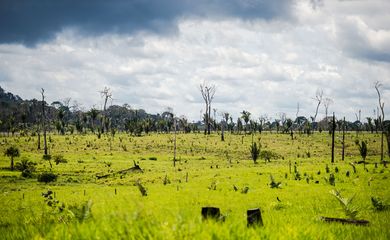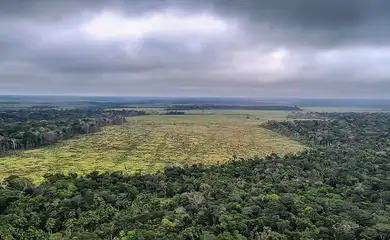Brazil publishes environmental action targets across ministries

On Thursday (Jan. 25), the Brazilian government launched the Transversal Environmental Agenda, a document consolidating environmental goals, deliverables, and institutional measures for the 2024-2027 Multi-Year Plan (PPA).

For the first time, the PPA was crafted to incorporate cross-cutting agendas, encompassing measures from multiple ministries. These include agendas focusing on children and adolescents, women, racial equality, indigenous peoples, and the environment.
The Transversal Environmental Agenda stands out as the most comprehensive, featured in 50 of the PPA's 88 programs. It encompasses 113 specific objectives, 372 deliverables, and 150 institutional and normative measures across strategic, tactical, and managerial levels.
"When I assumed the role of minister of the Environment and Climate Change, in 2023, one of the ministry's guiding principles was that environmental policy should be transversal rather than sectoral. I'm pleased to see that we are daring to apply this concept, which originated in an academic environment, to public policy in the environmental sphere," celebrated Minister Marina Silva, during the document launch event in Brasília.
Deforestation
One of the primary environmental goals for the next four years is to achieve a 20% reduction in the total area deforested annually across the six Brazilian biomes (Amazon, Cerrado, Caatinga, Atlantic Forest, Pampa, and Pantanal). Additionally, the plan includes urban infrastructure measures aimed at helping Brazilian municipalities adapt to extreme hydrological events like droughts and floods.
Indigenous peoples and quilombolas
In alignment with the indigenous agenda, the Transversal Environmental Agenda aims to quadruple the total number of indigenous territories delimited within the four-year period of the PPA. Additionally, it targets a doubling of the number of villages benefiting from drinking water supply infrastructure to reach 286 by 2027. Furthermore, the Brazilian government aims to expand the titled area for quilombola communities nationwide from 12,000 hectares in 2024 to 42,000 hectares in 2027.
PPA
The PPA, approved by the National Congress as mandated by the Federal Constitution, stands as the primary medium-term planning instrument of the federal government. It serves as a cornerstone for resource allocation and the formulation of annual budget laws. The PPA 2024-2027 involved extensive public participation, including three inter-council forums and 27 regional plenary sessions, which collectively engaged over 34,000 participants. Additionally, a digital platform for citizen participation garnered over 4 million visits, 1.5 million votes, and 8,254 proposals from society.
During the launch of the Transversal Environmental Agenda, Minister of Planning Simone Tebet highlighted that the program receiving the highest number of votes from public participation focused on climate change and proactive measures to prevent environmental disasters.
In the upcoming months, the Ministry of Planning is expected to launch similar documents for the remaining cross-cutting agendas outlined in the PPA.




